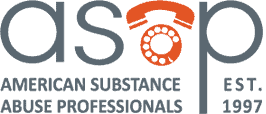What is DOT testing?
The DOT Drug Test is a federally regulated test required by the Department of Transportation (DOT). The test was enacted by DOT to protect the safety of workers in the transportation industry and the public. The US Department of Transportation (DOT) has drug and alcohol testing requirements for safety-sensitive employees employed in the modes of the Federal Aviation Administration (FAA), Federal Railroad Administration (FRA), Federal Transit Administration (FTA), Federal Motor Carrier Safety Administration (FMCSA), United States Coast Guard (USCG) (under Homeland Security), and Pipeline and Hazardous Materials Safety Administration (PHMSA).
What is the return-to-duty process?
When a DOT regulated employee/candidate tests positive on a DOT mandated drug and/or alcohol test or refuses to take a required DOT test, the employee is required to go through the return-to-duty process to be eligible to return to a safety-sensitive position. The process begins with an evaluation and assessment conducted by a qualified DOT Substance Abuse Professional (SAP) that has met the credential and training requirements set forth by the DOT 49 CFR Part 40. The SAP makes treatment and/or education recommendations for the employee. Once the employee has successfully complied with the recommendations, a follow-up evaluation is scheduled with the same SAP and the SAP submits a written determination of the employee’s eligibility (or ineligibility) to perform a safety sensitive job to the employer. The employee’s eligibility status is contingent upon an observed negative DOT return-to-duty test as required by the employer. The decision to hire or return the eligible employee to work is at the discretion of the employer.
Who is required to go through the DOT return-to-duty process?
All DOT regulated safety-sensitive employees/candidates employed in the aviation, railroad, public transit, trucking, maritime, and pipeline industries who have violated federal DOT drug and alcohol testing rules with a positive test result, a refusal to test or other violation.
If an employee falls under Federal Aviation (FAA), Federal Motor Carrier Safety Administration (FMCSA), Federal Railroad Administration (FRA), Federal Transit Administration (FTA), Pipeline and Hazardous Materials Safety Administration (PHMSA) or the United States Coast Guard (USCG) and they failed or refused a DOT drug and/or alcohol test, they must still complete the return-to-duty process in order to return to safety-sensitive duty.
If an employee or applicant tests positive for drugs or alcohol, is there anything that I should do as an employer?
As an employer, if your employee or potential employee has violated a DOT drug and/or alcohol drug test, DOT 49 CFR 40.287 requires you to immediately remove the employee/candidate from safety sensitive duty and refer the employee/candidate to a qualified DOT SAP. In addition, you are required to furnish a list of qualified DOT SAPs for the employee/candidate to begin the return-to-duty process. This list must be readily available to the employee and acceptable to you, with names, addresses and telephone numbers. You cannot charge the employee a fee for compiling or providing this list. You may provide this list yourself or through a C/TPA or other service agent. ASAP can provide a list of qualified DOT SAPs in your area. Note that you are required to provide a qualified DOT SAP list even if you choose to terminate the employee.
What is a SAP?
A Substance Abuse Professional (SAP) is a person who helps DOT regulated employees return to work after a DOT violation has occurred, such as a failed drug and/or alcohol test or a refusal to test. As described in the DOT employee handbook (DOT, 2019a), SAPs are the “gatekeepers to the re-entry program”. They determine when a safety-sensitive employee is prepared to return to work safely. To act as a SAP the provider must have specialized training, credentialing and continuing education on drugs and alcohol per DOT CFR 49 Part 40 guidelines. SAPs advocate for neither the employer nor the employee. Their function is to protect the public interest in safety by recommending appropriate education and/or treatment.
How long will the entire SAP Process take?
The time it takes for a person to complete the DOT return-to-duty process varies on a case by case basis. A qualified DOT SAP will make a clinical assessment and recommend treatment and or education customized to the individual needs. The SAP must make a recommendation for some level of care per DOT CFR 49 Part 40 Subpart O.
Who pays for the return-to-duty process?
As an employer, you are not required to pay for an employee/candidate to go through the return-to-duty process; however, you should refer them to your company policy/practices regarding payment and reiterate the employee’s responsibilities under DOT 49 CFR 40.287.
Am I required to offer a second chance?
The DOT requires employers to have a policy in place stating if you offer second chance (and when) or if you have zero tolerance. Employers with workers in safety-sensitive positions have responsibilities to ensure the safety of their employees and the public. A drug-free workplace providing a second chance for their employees has been proven to:
- decrease workplace accidents and workers’ compensation claims
- help guard against costly liability exposures
- protect productivity
- reduce employee turnover
- improve employee morale
- reduce workplace tardiness and absenteeism
What types of work can my employee do during the process?
An employee who has violated a DOT drug and/or alcohol drug test is not allowed to work in any type of DOT safety sensitive position. It is at the employer’s discretion if the employee is allowed to work in a non-DOT regulated position while going through the return-to-duty process.
What are the requirements for follow-up testing after an employee completes the return-to-duty process?
Once an employee completes the SAP recommendations for the return-to-duty process and the SAP has deemed the employee/candidate eligible for the observed return-to-duty testing, the employer sends the employee in for the test. This drug test is required to be negative for an employee to be returned to DOT safety sensitive duty.
In addition, the SAP recommends a follow up testing schedule to be conducted by the employer. DOT regulations require a minimum of six observed follow-up tests in the first 12 months following the return-to-duty process and an unlimited number of observed follow-up tests can continue for up to five years. These tests can also be scheduled by the employer’s TPA.




